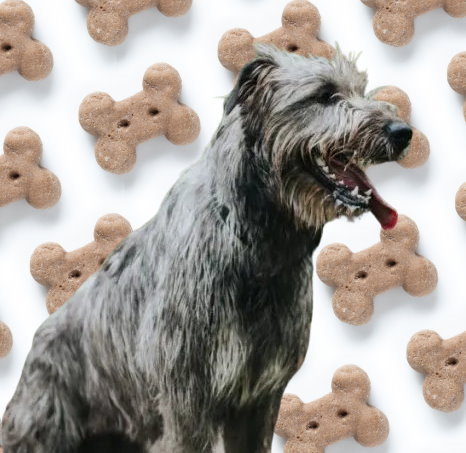Welcome to Dog Training Newbies !
Welcome to Dog Training Newbies !

The Irish Wolfhound, known for its majestic stature and gentle nature, is a breed that requires special attention when it comes to nutrition and feeding. As a large and active dog, the Irish Wolfhound has specific dietary needs that must be met to support their growth, health, and overall well-being. In this article, we will delve into the importance of proper nutrition for your Wolfhound, the key elements of a balanced diet, feeding guidelines, and tips to ensure that your beloved companion thrives on a diet that is tailored to their unique requirements.
UNDERSTANDING YOUR WOLFHOUND'S NUTRITIONAL NEEDS
Irish Wolfhounds are one of the largest dog breeds, often reaching heights of over 30 inches at the shoulder and weighing upwards of 100 pounds. Due to their size and rapid growth during puppyhood, Wolfhounds have distinct nutritional requirements compared to smaller breeds. Providing your Wolfhound with a diet that is rich in essential nutrients is crucial for their development, muscle maintenance, and overall health.
KEY ELEMENTS OF A BALANCED DIET FOR WOLFHOUNDS
A balanced diet for your Wolfhound should consist of high-quality protein sources, healthy fats, carbohydrates, vitamins, and minerals. Protein is essential for muscle development and repair, while fats provide energy and support skin and coat health. Carbohydrates supply energy for the active lifestyle of a Wolfhound, while vitamins and minerals play a vital role in maintaining various bodily functions.
When selecting a commercial dog food for your Wolfhound, opt for formulas that are specifically designed for large breeds or giant breeds. These formulas are formulated to meet the unique nutritional needs of large dogs and often contain controlled levels of minerals to support healthy bone growth and development.


FEEDING GUIDELINES FOR YOUR WOLFHOUND
The feeding guidelines for your Wolfhound will vary based on their age, weight, activity level, and overall health. Puppies require a diet that is higher in calories and nutrients to support their rapid growth, while adult Wolfhounds may benefit from a diet that is tailored to their activity level and weight management needs.
Divide your Wolfhound's daily food intake into two or three meals to prevent issues such as bloat, a serious condition that can affect deep-chested breeds like the Irish Wolfhound. Monitor your dog's body condition and adjust their portion sizes as needed to maintain a healthy weight.
TIPS FOR NOURISHING YOUR WOLFHOUND
Consult with Your Veterinarian: Before making any changes to your Wolfhound's diet, consult with your veterinarian to ensure that you are providing them with the appropriate nutrition for their age, size, and health status.
Provide Fresh Water: Always ensure that your Wolfhound has access to fresh, clean water throughout the day to prevent dehydration and support their overall health.
Monitor Your Wolfhound's Weight: Regularly monitor your Wolfhound's weight and body condition to ensure that they are maintaining a healthy weight. Adjust their feeding portions accordingly to prevent obesity or undernourishment.
Avoid Feeding Table Scraps: While it may be tempting to share your food with your Wolfhound, avoid feeding them table scraps as these can be high in fat, salt, and other ingredients that may be harmful to your dog's health.
Nourishing your Irish Wolfhound with a diet that is tailored to their specific nutritional needs is essential for promoting their health and well-being. By providing your Wolfhound with a balanced diet, following feeding guidelines, and implementing proper feeding practices, you can support their growth, maintain their health, and ensure that they lead a long and happy life as a cherished member of your family. Remember that a well-nourished Wolfhound is a healthy and vibrant companion who will bring joy and companionship to your life for years to come.